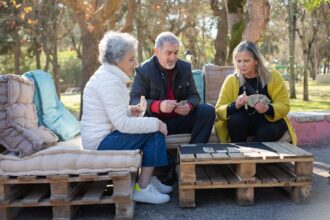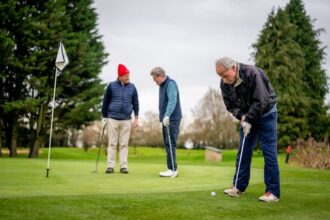Recent research reveals the link between adverse childhood experiences (ACEs), such as physical or emotional abuse, and the increased likelihood of individuals perpetrating abuse against older generations. While it is commonly understood that generational trauma transmits from parents to their children, this study highlights that the impact can also reverberate upwards, affecting the parent’s generation. The survey conducted in Japan with a cohort of over 13,000 participants revealed that approximately half reported experiencing one or more ACEs. Among these individuals, 8.5% admitted to engaging in physical or verbal abuse towards people over the age of 65. Crucially, the study identified the perpetrator’s mental and physical health—both of which can be deteriorated by ACEs — as significant contributing factors. This more profound understanding of the roots of intergenerational violence is expected to guide researchers in developing targeted guidelines and support systems to interrupt this destructive cycle.
The proverb “spare the rod, spoil the child” suggests that without physical discipline, a child will become spoiled; however, contemporary studies consistently demonstrate the opposite. Subjecting children to physical punishment, emotional abuse, neglect, or dysfunction within the household has enduring detrimental effects on their mental and physical well-being. These adverse childhood experiences can initiate a self-sustaining cycle of abuse, with the children of those affected by ACEs more likely to endure similar mistreatment.
Although it is recognised that ACEs elevate the risk of violence being passed down through generations, a novel investigation led by researchers from the University of Tokyo reveals that this cycle of violence can also ascend the generational ladder. According to Chie Koga, the project assistant professor at the Research Center for Advanced Science and Technology at the University of Tokyo and lead author of the study, individuals with a history of adverse childhood experiences are at a higher risk of perpetrating violence and verbal abuse against older adults. Psychological factors, Koga notes, are the most significant contributors to this behaviour.
The study involved an analysis of responses from 13,318 participants, comprising an almost equal split of men and women between the ages of 20 and 64 in Japan. It was found that participants with a higher number of ACEs were more prone to committing physical or verbal abuse against older adults. The specific ACEs considered included interpersonal loss (such as parental death or divorce), family psychopathy (encompassing parental mental illness and domestic violence), as well as physical and psychological abuse and neglect.
The findings revealed that 8.5% of respondents admitted to abusing older adults. While almost half reported no ACEs, about 36% had one, and approximately 14% had two or more. The likelihood of engaging in elder abuse was more than three times higher for those with one ACE and nearly eight times higher for those with two or more compared to individuals without any ACEs.
Koga hypothesises that certain forms of violence primarily stem from socio-environmental factors and that violence often serves as a last resort for individuals striving to protect their dignity. This perspective challenges the prevailing notion within Japanese society that holds individuals solely responsible for their violent actions, a belief that Koga argues is exacerbated by a significant deficit in research. This study thus represents an important step forward in violence epidemiology.
Other notable factors influencing the propensity for elder abuse among those with ACEs included depression, other mental health issues, and self-assessed health status. Though less significant, factors such as living arrangements, marital status, income, and social activity (measured by whether individuals went out at least once a month) also played a role.
Koga emphasises that the cycle of violence can extend to all vulnerable groups and identifies social and environmental risk factors newly associated with elder abuse. The study reaffirms the importance of preventing violence while noting that not all individuals with ACEs continue to perpetrate violence. Looking forward, Koga expresses a desire to explore factors that might mitigate this cycle of abuse, aiming to offer new avenues for intervention and support.
More information: Chie Koga et al, Intergenerational Chain of Violence, Adverse Childhood Experiences, and Elder Abuse Perpetration, JAMA Network Open. DOI: 10.1001/jamanetworkopen.2024.36150
Journal information: JAMA Network Open Provided by University of Tokyo








